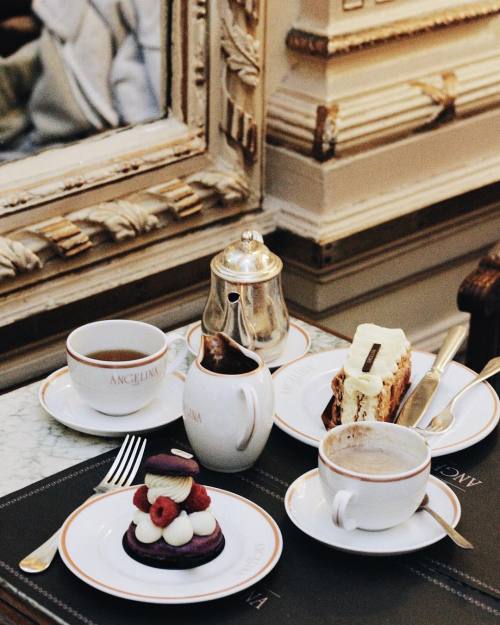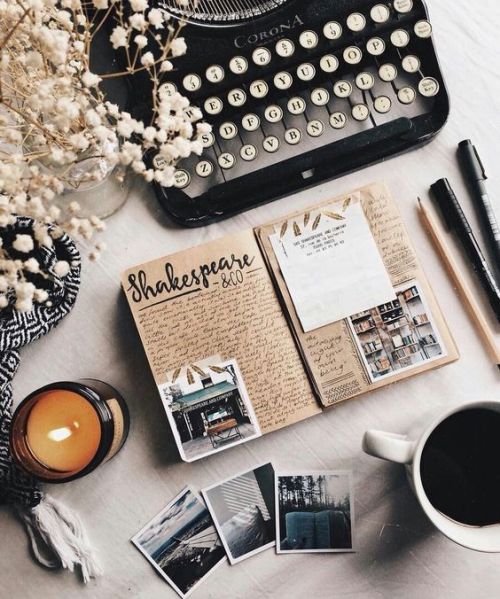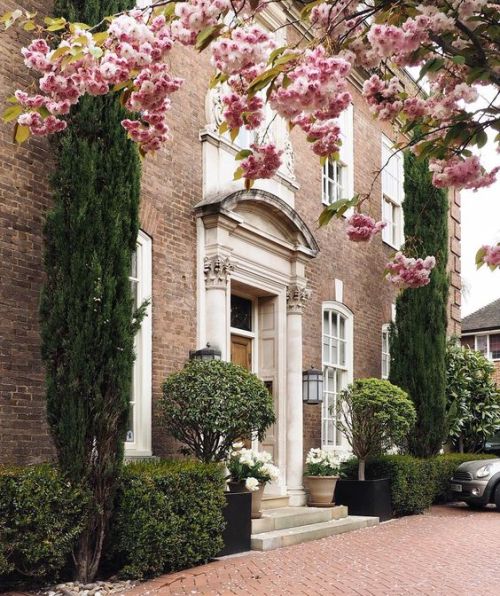Reblog If You’re A Studyblr/langblr
reblog if you’re a studyblr/langblr
looking for more blogs to follow!! need to spice up my dash a bit!! also feel free to just message/talk to me 🌻
More Posts from Theblogofwildfellhall and Others
how to ask questions in french 💗
1. Est-ce que
literally “is it that,” can be placed at the beginning of any affirmative sentence to turn it into a question:
Est-ce que vous dansez ? Do you dance? Est-ce que tu veux voir un film ? Do you want to see a movie? Est-ce qu'il est arrivé ? Has he arrived? Place any question words in front of est-ce que: (eg. quand, quel, où) Quand est-ce que tu veux partir ? When do you want to leave? Pourquoi est-ce qu’il a menti ? Why did he lie? Quel livre est-ce que vous cherchez ? Which book are you looking for?
2. Inversion
A more formal way to ask questions is with inversion. Invert the conjugated verb and subject pronoun and join them with a hyphen:
Dansez-vous ? Do you dance? Veux-tu voir un film ? Do you want to see a movie? Est-il arrivé ? Has he arrived? Again, place any interrogative words at the beginning of the question: Quand veux-tu partir ? When do you want to leave? Pourquoi a-t-il menti ? Why did he lie? Quel livre cherchez-vous ? Which book are you looking for? You can use inversion to ask negative questions. Ne dansez-vous pas ? Don’t you dance? N'est-il pas encore arrivé ? Hasn’t he arrived yet?
3. Statement as question
A very simple but informal way to ask yes/no questions is to raise the pitch of your voice while pronouncing any sentence:
Vous dansez ? You dance? Tu veux voir un film ? You want to see a movie? Il est arrivé ? He arrived? You can also use this structure to ask negative questions: Tu ne danses pas ? You don’t dance? Il n'est pas encore arrivé ? He hasn’t arrived yet?
4. N'est-ce pas?
If you’re pretty sure the answer to your question is yes, you can just make an affirmative statement and then add the tag n'est-ce pas ? to the end. This is also informal:
Tu danses, n'est-ce pas ? You dance, right? Tu veux voir un film, n'est-ce pas ? You want to see a movie, right? Il est arrivé, n'est-ce pas ? He arrived, right?
5. Notes
The French equivalent of the verb “to ask” is demander, but “to ask a question” is “poser une question.”
There are two main types of questions:
Yes/no questions, also known as polar questions or closed questions (questions fermées), ask for a simple yes or no answer.
Information questions, also known as WH questions, constituent questions, or open questions (questions ouvertes), ask for information with question words, like who, what, when, where, why, which, how, how much/many.
When using inversion with the third person singular (il, elle, or on) and a verb that ends in a vowel, you must add t- between the verb and subject pronoun:
Aime-t-il les films ? - Does he like movies? A-t-on décidé ? - Have we decided? Écoute-t-elle la radio ? - Does she listen to the radio?
There is a special French word, si, that is used only when responding in the affirmative to a negative question.
- Vas-tu au ciné ? - Oui ! - Are you going to the movies? - Yes! - Ne vas-tu pas au ciné ? - Si ! - Aren’t you going to the movies? - Yes (I am)! - Est-ce que tu veux venir ? - Oui ! - Do you want to come? - Yes! - Tu ne veux pas venir ? - Si ! - You don’t want to come? - Yes (I do)

“Fairy tales are more than moral lessons and time capsules for cultural commentary; they are natural law. The child raised on folklore will quickly learn the rules of crossroads and lakes, mirrors and mushroom rings. They’ll never eat or drink of a strange harvest or insult an old woman or fritter away their name as though there’s no power in it. They’ll never underestimate the youngest son or touch anyone’s hairpin or rosebush or bed without asking, and their steps through the woods will be light and unpresumptuous. Little ones who seek out fairy tales are taught to be shrewd and courteous citizens of the seen world, just in case the unseen one ever bleeds over.”
— S.T. Gibson (via sarahtaylorgibson)

things to do when you’re bored:
filling a notebook with random conversation phrases overheard from strangers
writing 100 poems in one week (inspired by @alwaysbringabookwithyou)
creating moodboards for your friends
learning lyrics in a foreign language
reading challenges of any kind
creating playlists for different moods, seasons, times of the day
turning an unused notebook into an art journal
writing short stories on words from a random dictionary page
learning everything about a certain year or historical period
listing 100 places you want to visit
imagining the best version of yourself and jot down first steps to become them
trying and rating new skincare/beauty products
tag your vibe
days of the week;
monday: snoozing your alarm clock, navy, seeing the moon in the morning, vanilla ice cream, writing poetry, blurry photographs, windswept hair, iced coffee
tuesday: seeing a cat on the street, a light rain shower, untied shoelaces, indistinct music from someone else’s earphones, empty coffee shops, denim jackets, long train rides
wednesday: pastel highlighters, drinking water, group laughter, plucking daisy petals, floral scents, counting down to a birthday, peonies
thursday: old books, a downpour, telling the truth, comfortable silence, hand holding, wrapping a gift, the smell of leather, reminiscence
friday: neon lights, sweet cravings, a little bit drunk, falling in love with a stranger, remembering your dreams, cherry red, late night showers, desserts at midnight
saturday: watering plants, childhood cartoons, a bowl of cereal, meeting someone new, waking up early and laying in bed, spontaneous plans, sitting on a rooftop
sunday: strawberry smoothies, golden hour, a soft feeling of wistfulness, lazy afternoons, 4pm naps, lofi mixes, deja vu, long daydreams, lighting sparklers

📷: @kseniaskos
London, UK 🇬🇧
I've just met the worst incel ever and I am shaking 😂

-
 studyy-yin-blog liked this · 6 years ago
studyy-yin-blog liked this · 6 years ago -
 studydisapointment liked this · 6 years ago
studydisapointment liked this · 6 years ago -
 gamernotes reblogged this · 6 years ago
gamernotes reblogged this · 6 years ago -
 language-noodle reblogged this · 6 years ago
language-noodle reblogged this · 6 years ago -
 i-only-want-mac-and-cheese liked this · 6 years ago
i-only-want-mac-and-cheese liked this · 6 years ago -
 studyami-blog1 liked this · 6 years ago
studyami-blog1 liked this · 6 years ago -
 kaylangblr-blog reblogged this · 6 years ago
kaylangblr-blog reblogged this · 6 years ago -
 knowledgestudies reblogged this · 6 years ago
knowledgestudies reblogged this · 6 years ago -
 frenhblr liked this · 6 years ago
frenhblr liked this · 6 years ago -
 somalang reblogged this · 6 years ago
somalang reblogged this · 6 years ago -
 bonbonmacaron reblogged this · 6 years ago
bonbonmacaron reblogged this · 6 years ago -
 greenpeach24 liked this · 6 years ago
greenpeach24 liked this · 6 years ago -
 thecaffeinatedstudent reblogged this · 6 years ago
thecaffeinatedstudent reblogged this · 6 years ago -
 ais2n liked this · 6 years ago
ais2n liked this · 6 years ago -
 siriseva-valonsade-blog reblogged this · 6 years ago
siriseva-valonsade-blog reblogged this · 6 years ago -
 siriseva-valonsade-blog liked this · 6 years ago
siriseva-valonsade-blog liked this · 6 years ago -
 aristohtle liked this · 6 years ago
aristohtle liked this · 6 years ago -
 herostudies-blog reblogged this · 6 years ago
herostudies-blog reblogged this · 6 years ago -
 jerostudies-blog liked this · 6 years ago
jerostudies-blog liked this · 6 years ago -
 lifebuoyjournals reblogged this · 6 years ago
lifebuoyjournals reblogged this · 6 years ago -
 p-zing-blog liked this · 6 years ago
p-zing-blog liked this · 6 years ago -
 sopejins liked this · 6 years ago
sopejins liked this · 6 years ago -
 senagustd-blog reblogged this · 6 years ago
senagustd-blog reblogged this · 6 years ago -
 anemonerialdreams liked this · 6 years ago
anemonerialdreams liked this · 6 years ago -
 olimpiccat liked this · 6 years ago
olimpiccat liked this · 6 years ago -
 chxstudyblr reblogged this · 6 years ago
chxstudyblr reblogged this · 6 years ago -
 seriedesiluetas liked this · 6 years ago
seriedesiluetas liked this · 6 years ago -
 a-menaceinpink reblogged this · 6 years ago
a-menaceinpink reblogged this · 6 years ago -
 mimthefuture-blog liked this · 6 years ago
mimthefuture-blog liked this · 6 years ago -
 19blankspace93 liked this · 6 years ago
19blankspace93 liked this · 6 years ago -
 icecoffeestudy liked this · 6 years ago
icecoffeestudy liked this · 6 years ago -
 quantodoteusal liked this · 6 years ago
quantodoteusal liked this · 6 years ago -
 studynlangs reblogged this · 6 years ago
studynlangs reblogged this · 6 years ago -
 potatodesignblr reblogged this · 6 years ago
potatodesignblr reblogged this · 6 years ago -
 innko reblogged this · 6 years ago
innko reblogged this · 6 years ago -
 innko liked this · 6 years ago
innko liked this · 6 years ago
Emma. 27. A blog for Classic Literature, language learning, flowers, and aesthetic
117 posts
